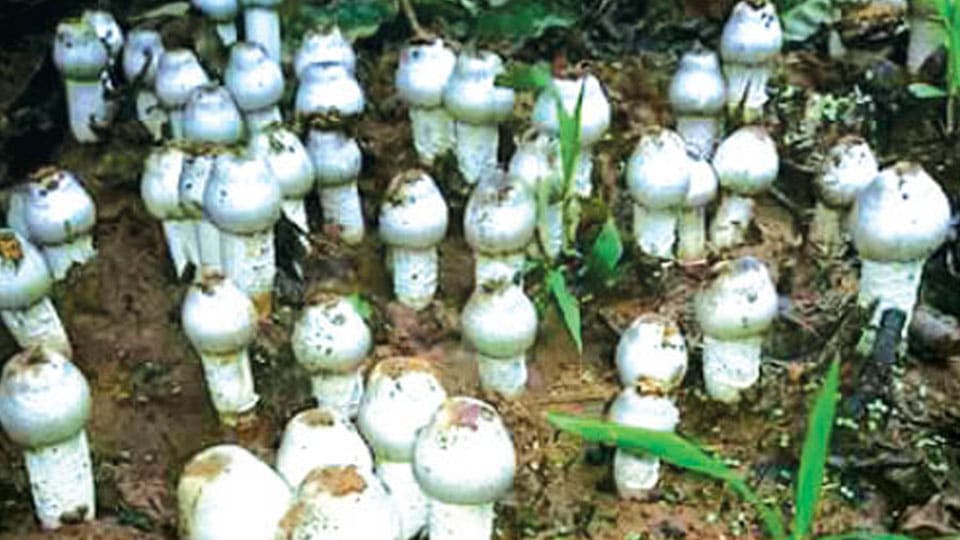Mushrooms or toadstools are found mostly during the monsoon season especially when thunder and lightning strikes the landscape
Madikeri: It is that time of the year when many edible mushrooms grow in the wild in the hilly district of Kodagu, making it a mushroom-lovers’ dream destination.
Mushrooms or toadstools are found mostly during the monsoon season especially when thunder and lightning strikes the landscape. As soon as the first showers hit the dry earth, residents and families, who are familiar with the areas where usually mushrooms grow, head there to reap the annual harvest — where the dormant spores lie from the previous year. And the person who sees it first, it’s all his.
A particular mushroom that evokes interest this time is the ‘Aland Kumm’ in Kodava language. Its scientific name is ‘Agaricus bisporus’, an edible basidiomycete mushroom, native to grasslands in Europe and North America. It has two colour states while immature — white and brown.
A high-fibre content food product, these mushrooms usually rise near paddy fields and sometimes seen under dense cover of coffee estates. ‘Aland Kumm’ is prepared as curry using coconut masala or as masala fry too.
The other well-known variety is ‘Kode Kumm’ (umbrella mushroom) with scientific name ‘Termitomyces clypeatus’ (solitary, grows in soil and also on termite mounds) and ‘Nuchchi Kumm’ (Termitomyces microcarpus). The cluster of this mushroom is usually spread all throughout the location in specks of white. While the ‘Kode Kumm’ is usually salted and toasted on a raw flame in the fireplace, the others are prepared as curry to consume them with rice rotis.
Research finding
Interestingly, according to an on-going research, lightning makes mushrooms more plentiful. The research is based on a Japanese traditional knowledge where they welcome storms over their fields based on the belief that lightning strikes provoke plentiful harvests of mushrooms. A research is being conducted by scientists in northern Japan where they are bombarding a variety of mushrooms in lab-based garden plots with artificially induced lightning to see if electricity actually makes the fungi multiply.
The results show that lightning-strength jolts of electricity can more than double the yield of certain mushroom species compared with conventional cultivation methods.








Recent Comments